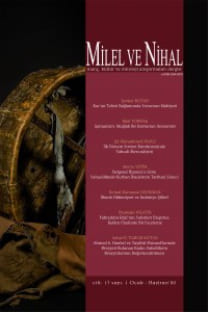Tecdid’e “Evet”; Lakin Ortada Tecdid Edilecek Bir Din Kalırsa!
Tecdid meselesinin İslam dünyasının, İslam ilim ve fikir geleneğinin inkâr edilemez bir olgusu olduğundan ve gündemi işgal eden öncelikli meselelerin başında geldiğinden kuşku yoktur. Kuşku duyulmaması gereken bir başka husus ise, tecdid düşüncesinin günümüz İslam dünyasında “taban”a egemen olan bir yaklaşım olmak şöyle dursun, finans, medya ve “ulema” araçları alanında adeta bir tekel oluşturmuş olan ve bu tekel sayesinde geniş halk kitlelerini yönlendiren katı muhafazakâr ve gelenekçi kesimler tarafından “ambargo” uygulanan, “istenmeyen” ilan edilen, öte yandan İslam dünyasının yöneticileri tarafından da “tehlikeli” görülen bir talep olduğudur. Böylelikle, biri muhafazakâr öteki seküler iki ateş arasında kalan “tecdid” talepleri bir türlü tabana yayılamamakta ve egemen yaklaşım haline gelememektedir. Ancak tecdid meselesinin karşı karşıya bulunduğu sıkıntılar, sadece bu yaklaşımın yaygınlaşmasının önündeki “harici” engellerden ibaret değildir. Zira tecdid düşüncesinin aşmak ve üstesinden gelmek zorunda olduğu kendi metodolojik ve epistemolojik meselelerinin de tam olarak çözüme kavuşturulduğu söylenemez. Dolayısıyla “tecdid” meselesinin halletmek zorunda olduğu, biri “metodolojik-epistemolojik” içe dönük yüzü, diğeri ise tecdid fikrinin tabana yayılması ile ilgili “tecdid siyaseti” denebilecek dışa dönük yüzü olduğu söylenebilir.
Tajdid is “OK”; But If There is any Religion to Implement the Tajdid on!
It is obvious that the problem of tajdid has been one of the undeniable facts of Islamic thought, and among the top isssues on the agenda. Another indubitable matter is; the idea of tajdid in present-day Islamic world, has become far beyond its being an approach adopted by “grassroot” , but on the contrary it has become a subject which announced as “unwanted” and “embargoed” by some fundamentalist and traditionalist conservative groups who is dominant in finance, media and “scholar” sects. Those sects orient the public according their thoughts by mediate their dominant power on them. Likewise, the idea of tajdid has been seen as a “dangerous” by the leaderes/administrations of some Islamic countries. Due to its being under fire from both side such as conservatism and secularism, the demands for “tajdid” neither has been spread over on the grassroot level, nor became a common ascendant approach. Of course, the hardships of the tacjid issue is not limited to the “physical” obstacles which prevent its become prevalent. Since, it can not be asserted that the some methodological and epistemological problems in tajdid idea have been solved complately which need to be overcomed firstly. Therefore, it can be claimed that; thre are two main obstacles of tajdid issue which need to tackled previously. One of it the “metholological-emistemological” intrinsic side of the problem, and the other is “tajdid policy” extrinsic side of the problem which help in spreading the idea of tajdid on grasroot level.
